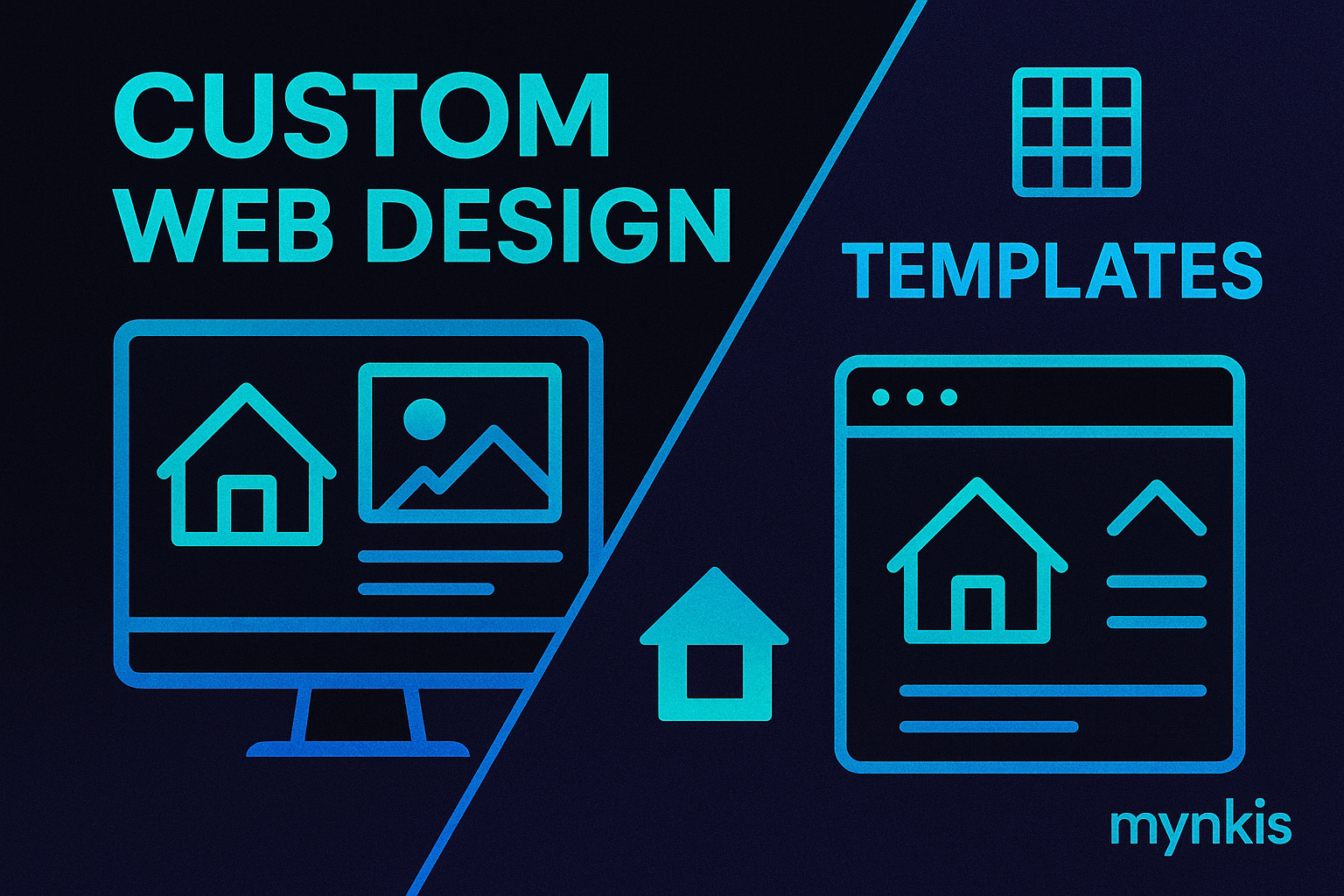Schedule a Demo
When it comes to establishing an online presence for real estate professionals, the choice between custom website design and pre-made templates can feel like choosing between a bespoke suit and off-the-rack clothing. Both have their merits, but which path should you, a real estate broker, take when aiming to optimize for local search queries and enhance your SEO? Let's dive deep into this.
Custom website design involves working closely with a designer or development team to build a website from the ground up. This approach allows for full control over every aspect of the site, from the layout to the functionality. In my work with brokers, I've seen firsthand how a custom design can truly elevate a brand's online presence. For those looking to stand out in a crowded market, customization offers the opportunity to integrate sophisticated SEO techniques tailored to local search terms and unique branding elements.
The process is more involved, often requiring multiple rounds of feedback and revisions, but the payoff is a website that not only looks exceptional but functions as an effective tool for lead generation and engagement. Moreover, with custom solutions, you can incorporate advanced analytics and tracking that help pinpoint the most effective local SEO strategies for your business.
On the other hand, templates offer a quicker and often more budget-friendly solution. Platforms like WordPress and Wix provide a plethora of pre-designed templates tailored for different industries, including real estate. These templates can be customized to a certain extent, allowing you to add your logo, colors, and even some SEO-friendly elements.
The primary advantage here is speed. You can have a professional-looking website up and running in days rather than weeks or months. This can be particularly beneficial for those entering the market or those looking to launch a new segment of their business quickly. However, it's crucial to recognize that while templates offer flexibility within their scope, they are ultimately a shared design—your competitors might have the same look.
When it comes to SEO, the customization offered by a bespoke website is unmatched. You can work directly with developers to tailor meta tags, URLs, and content to hyper-local queries that bring the most relevant traffic to your property listings. I often advise my clients that with custom sites, we can implement sophisticated SEO strategies like geo-targeting and local schema markup, which significantly boost visibility on search engines for buyers and sellers looking for properties in specific areas.
Templates, while SEO-friendly to some degree, come with limitations. They may support basic SEO features such as keyword optimization and sitemap generation, but they lack the fine-tuned control necessary for optimizing based on local nuances. The truth is, you may need to compromise on certain SEO functionalities when you're working within a template's framework.
Let's not forget about scalability. As your brokerage grows, so do your digital needs. Custom-designed websites are inherently more scalable. I've witnessed many brokers evolve from small startups to large operations, and those with custom platforms had no trouble expanding their digital offerings—whether it was adding new listing features, enhancing user experience, or integrating with CRM systems. Templates can become bottlenecks, requiring a complete overhaul when you need advanced features or when they're discontinued by the hosting service.
This doesn't mean you can't grow with a template—it's possible, but it often involves more workarounds and might not fit neatly into your strategic goals as you expand your real estate business.
User experience (UX) is paramount, especially in real estate where potential clients are often browsing on mobile devices or late at night. With a custom design, you can craft a seamless experience tailored to your users' behaviors and preferences. For example, in my experience working with firms to boost local query results, we've implemented user-specific property filters and saved search features that have dramatically increased user retention and satisfaction.
While templates provide a good baseline UX, they might not offer the fluidity and personalized touches that make for an engaging user journey. If your aim is to not only attract but also retain visitors and ultimately convert them into leads, a custom design gives you the flexibility to achieve this more effectively.
Cost is, of course, a significant factor. Custom website design entails a higher upfront investment, which reflects the time, expertise, and creativity that go into creating a bespoke platform. However, when viewed as a long-term investment in your business's growth and online presence, the costs can often be justified. From the research by Gartner, it's clear that digital marketing tools, when tailored to specific needs, can provide a strong ROI for businesses focused on real estate.[1]
Templates present a more immediate and lower-cost option. However, remember that ongoing maintenance, the potential need for specialized plugins, and possible limitations in scalability might lead to hidden costs over time. Based on my consultations with brokers, the long-term value of a custom-designed site often outweighs the initial financial outlay.
Ultimately, your choice between a custom website design and a template will boil down to your strategic fit and long-term goals. Are you aiming to be a market leader with a unique digital presence that reflects your brand's ethos? Or are you looking for a quick market entry with a satisfactory solution that supports basic growth?
Incorporating feedback from industry leaders at conferences like Inman Connect, there's a strong consensus on the value of custom designs for those serious about building a lasting real estate empire. But, templates are not without their place; they're ideal for those who want to test the waters or operate on a leaner budget in the short term. Based on available research, individual results may vary; the right approach depends on your unique circumstances and the stage of your brokerage.
To elevate your real estate business, you must choose wisely—a decision that aligns with not just your current needs but also your vision for the future.
